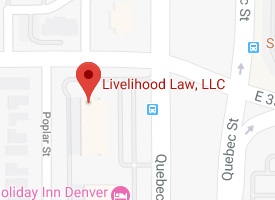
We’ve all had bad bosses: The boss that yells, the boss with unrealistic expectations, the boss who tells off-color jokes, and worse. Harmful workplace practices are one of the main causes of workplace stress, leading to more than $190 billion in healthcare costs annually. However, while sometimes it may be obvious that something is wrong, that doesn’t always mean something illegal is happening. That’s why we think all employees should know and understand their rights as a worker under Colorado and federal law. This will help you spot the difference between bad management and illegal behavior.
Illegal Management Practices
Some behaviors are illegal in the workplace. Unfortunately, most of the time, illegal management behavior is subtle. Still, there are many things that state and federal laws prohibit your employer from doing. Some of the most common illegal management practices include:
- Discriminating: Under both Colorado and federal law, your employer can’t discriminate against you based on gender, race, religion, age, marital status, or disability.
- Retaliating against whistleblowers: If you report suspected illegal activity, OSHA violations, or other illegal, very specific employment practices at work, your employer can’t retaliate against you by firing you or penalizing you.
- Prohibiting employees from discussing wages: In Colorado, your rights as an employee include the right to discuss your compensation with your co-workers. Your employer can’t ask you to sign a confidentiality agreement prohibiting you from discussing your pay or retaliating against you for doing so.
- Denying workers’ compensation claims: Your employer must cover your medical bills if you’re injured on the job or because of work. You may also be entitled to compensation if you can’t work because of work-related injuries.
- Failing to pay minimum wage and overtime: Colorado’s minimum wage is currently $12.56, and Denver has its own minimum wage of $15.87. Your employer must pay you at least that hourly wage. If you’re a tipped employee, your employer may pay you less, but your hourly wage plus tips must equal at least minimum wage. If you work more than 40 hours a week, you’re also entitled to receive time and a half for that overtime. Overtime also kicks in if you work more than 12 hours in a day.
Bad Management Practices
Once you know your employment rights under federal and Colorado law, it’s easier to spot management practices that are not necessarily illegal but are just bad management. Some examples might include:
- Favoritism: If your employer favors specific employees and gives preferential treatment unrelated to job performance, it can be demoralizing but not necessarily illegal. But if the favoritism is based on protected characteristics, like if you boss favors male employees over females, that’s another story.
- Poor communication: At times, we’ve all experienced poor communication from an employer. A manager may fail to act on your vacation request until the last minute, fail to communicate your job performance goals or procrastinate on management duties. But even though these are all prime examples of poor management, they are only illegal if there is discrimination, like the refusal to approva time off requests for women employees but not men.
- Using fear: Sometimes, employers use the fear of punishment to “manage” their employees. Setting unrealistic goals, threatening layoffs, and assigning blame may not necessarily be illegal, but they create a toxic atmosphere in the workplace and keep employees from thriving. If you’ve complained about discrimination, or participated in an investigation, or opposed discrimination in some way, then you experience a negative change from management, that could be retaliation.
Sometimes the line between bad and illegal management can be hard to see. But if you’re concerned about what’s happening in your workplace, an experienced employment lawyer can provide you with advice and guidance.
The 6 Biggest Myths About Sexual Harassment in the Workplace
We often have a stereotype in our minds regarding workplace sexual harassment. We picture a younger woman, imposed on by an older male supervisor, making overtly sexual comments or overtures in the office. In reality, sexual harassment is often much more subtle and can take many forms. But whether overt or covert, sexual harassment is a form of discrimination in the workplace.
In Colorado, both the Colorado Anti-Discrimination Act and Title VII of the Civil Rights Act of 1964 prohibit sexual harassment in the workplace. Despite the “me too” movement and more widespread knowledge and awareness of sexual harassment in the workplace, much misinformation persists about sexual harassment. In this article, we’ll address the 6 biggest myths about sexual harassment in the workplace.
- There must be physical contact.Sexual harassment doesn’t necessarily have to involve physical actions. It can be written, verbal, visual, or nonverbal. Sexual jokes, innuendos, asking for sexual favors repeatedly, staring suggestively, hand gestures, spreading rumors, and physical contact can all be forms of sexual harassment.
- Only women experience sexual harassment.While most reported cases of sexual harassment are reported by women, according to the Equal Employment Opportunity Commission (EEOC), more than 16% of cases are now reported by men.
- Sexual harassment only happens at work.Workplace sexual harassment usually does happen at work or during work hours. But you can also report harassment during non-work hours, at company-sponsored events, or even at places unrelated to work. A company can be legally liable for failing to prevent harassment at work. However, the harasser can and should still face repercussions for harassment they perpetuate on employees outside the office.
- Sexual harassment must involve a manager and subordinate.While many sexual harassment claims involve a supervisor and a subordinate employee, sexual harassment can also happen between employees with equal standing at work. Moreover, companies can also be held responsible for the sexually harassing behavior of their clients or vendors towards employees.
- Intentions can negate sexual harassment.Good intentions can’t negate someone’s sexually harassing behavior. Even if someone thinks what they are saying is flattering or just in fun, it could be sexual harassment. Similarly, repeated requests for a date can pass into sexual harassment if you don’t welcome the attention.
- Virtual work makes sexual harassment impossible. In the world of Zoom meetings, Slack conversations, and remote work, it can be easy to dismiss the idea of workplace sexual harassment. After all, how can someone harass you if you aren’t in the same physical space? But as we’ve already discussed, sexual harassment in the workplace doesn’t have to involve physical contact. It can happen via video conference and interoffice messaging just as easily as via email and the office kitchen.
Often it can be hard to tell if workplace behavior that makes you uncomfortable is sexual harassment. The most important thing you have to do is tell someone. Making a report can be intimidating, but it is necessary so that the company can’t deny knowing about it. If you’re concerned about inappropriate workplace behavior or what you can do about it, an experienced Colorado employment lawyer can help.


